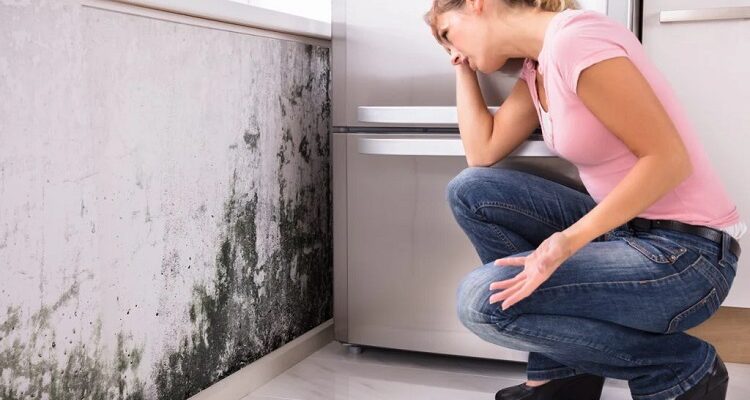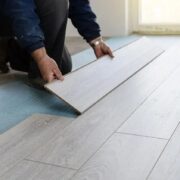Table of Contents
1. Understanding Mold Growth in Georgia
The Science behind Mold
One kind of fungus that grows well in moist, humid conditions is mold. It spreads by producing airborne spores that have the ability to land and germinate on a variety of surfaces. The warm, humid weather in Georgia makes it ideal for the growth of mold.
Factors Contributing to Mold Growth in Georgia
There are several factors that contribute to mold growth in Georgia. The high humidity levels, especially during the summer months, create an ideal environment for mold to thrive. Poor ventilation and inadequate insulation can also trap moisture and contribute to mold growth. If you want to get more exploration regarding home improvement, visit https://cookiebot.org.
Common Types of Mold Found in Georgia
Georgia is home to various types of mold, including the most common ones such as Aspergillus, Cladosporium, Penicillium, and Stachybotrys chartarum (also known as black mold). Each type of mold has its unique characteristics and potential health risks.
2. Recognizing the Signs of Mold Infestation
Visible Signs of Mold
Visible mold growth on surfaces like walls, ceilings, and floors is one of the most reliable indicators of a mold infestation. Spots of various hues, such as green, black, or white, are frequently indicative of mold growth. Moreover, it could smell musty.
Unusual Odors and Mold Smells
Mold has a distinct and unpleasant smell that is often described as musty or earthy. If you detect a persistent odor in your home, it could be an indication of hidden mold growth. Even if you can’t see the mold, the smell alone should prompt further investigation.
Health Symptoms Associated with Mold Exposure
Many health problems can arise from mold exposure, particularly in those who have allergies or respiratory issues. Coughing, sneezing, watery eyes, nasal congestion, and respiratory discomfort are typical symptoms. Extended contact with mold may result in more serious health problems.
3. The Dangers of Mold Infestation
Mold-Related Health Issues
Exposure to mold can have serious health consequences. Mold spores can irritate the respiratory system, triggering allergies, asthma attacks, and other respiratory conditions. Prolonged exposure to certain types of mold, such as black mold, can cause more severe health problems, including respiratory infections.
Mold Damage to Property and Structures
Mold can cause significant damage to property and structures if left untreated. It can deteriorate building materials, including walls, ceilings, and floors. As noted in Home Hearted reviews, mold growth can also lead to structural issues by weakening the integrity of the affected areas. Additionally, mold can cause stains and discoloration, which can be difficult to remove.
Legal and Insurance Considerations
In Georgia, as in many other states, mold infestation is a serious issue that can lead to legal and insurance complications. If you discover mold in your property, it is essential to take swift action to mitigate the issue. Failure to do so may result in liability for health issues caused by mold exposure and insurance claims being denied.
4. Mold Remediation and Prevention Strategies
Hiring a Professional Mold Remediation Company
When dealing with extensive mold infestation or if you are unsure about the severity of the problem, it is recommended to hire a professional mold remediation GA company. These experts have the knowledge, tools, and experience to effectively remove mold and restore a healthy environment. They can conduct thorough inspections, identify the root cause of mold growth, and implement appropriate remediation strategies.
Effective DIY Mold Removal Techniques
If the mold growth is limited to a small area, you may be able to remove it yourself. However, it is important to note that DIY mold removal should only be attempted if you have the necessary knowledge and precautions. This includes wearing proper protective equipment, isolating the area, and using appropriate cleaning solutions. It is crucial to follow guidelines issued by reputable sources, such as the Environmental Protection Agency (EPA), to ensure safe and effective mold removal.
Preventing Future Mold Growth in Georgia
To prevent future mold growth in Georgia, it is important to address the underlying causes of moisture and humidity. This can be done by maintaining proper ventilation in your home, using dehumidifiers in areas prone to excess moisture, repairing leaking pipes or roofs promptly, and ensuring proper insulation. Regular inspections and maintenance can also help identify and address any issues before they lead to mold growth.
By understanding mold growth, recognizing the signs of infestation, and being aware of the dangers it poses, you can take the necessary steps to address and prevent mold issues in your Georgia home. Whether through professional remediation or DIY methods, the key is to act promptly and effectively to protect both your property and your health.













Comments